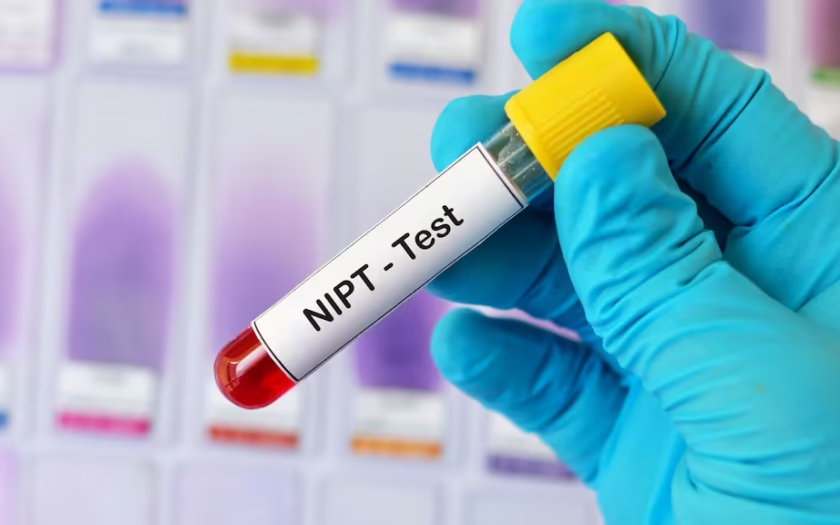Headaches are a common experience during pregnancy, often triggered by hormonal changes, especially in the early months. If you usually experience migraines, you might find relief after the first trimester as estrogen levels stabilize, though experiences vary. However, some individuals may find their migraines worsen during pregnancy, and symptoms can differ between pregnancies. It’s essential to note that headaches during pregnancy can stem from various causes beyond hormonal shifts.
Exploring Other Causes of Headaches During Pregnancy: Beyond Hormonal Changes
In addition to hormonal changes, several factors can contribute to headaches during pregnancy. Understanding these triggers is crucial for managing and alleviating this common symptom. From sleep deprivation to caffeine withdrawal, various factors can play a role in causing headaches for pregnant individuals.Aside from hormonal changes, several triggers can lead to headaches during pregnancy, including:
- sleep Deprivation. Not getting enough sleep can exacerbate headaches, which might occur more frequently during pregnancy due to discomfort or hormonal fluctuations;
- caffeine Withdrawal. If you’re reducing your caffeine intake during pregnancy, withdrawal can trigger headaches. Caffeine is often found in coffee, tea, and cola drinks;
- low Blood Sugar. Irregular eating patterns or not consuming enough food can lead to low blood sugar, which may contribute to headaches;
- dehydration. Pregnancy increases the body’s need for fluids, and dehydration can lead to headaches;
- stress, Anxiety, or Depression. Emotional stress can be a trigger for headaches, and these feelings might be heightened during pregnancy;
- eye Strain. Changes in vision or eye strain, especially as your eye muscles relax during pregnancy, can contribute to headaches.
Many of these triggers can lead to tension headaches, characterized by mild pain on both sides of the head. However, some triggers can also induce migraines, which are more severe and often affect one side of the head. Migraines may be accompanied by nausea, vomiting, and sensitivity to light or sound.
Pre-eclampsia: Symptoms, Risk Factors, and Management During Pregnancy
Experiencing frequent headaches after 20 weeks of pregnancy could indicate a potentially serious condition known as pre-eclampsia, characterized by high blood pressure affecting the kidneys and other organs. Headaches associated with pre-eclampsia may not respond to typical pain-relieving medications like paracetamol.
If you’re experiencing headaches during the second half of pregnancy, especially if they are severe, it’s crucial to inform your doctor or midwife promptly. Severe headaches during pregnancy should always be addressed by medical professionals, as they could indicate a more serious underlying condition.
Health Conditions During Pregnancy: Understanding Warning Signs and Symptoms
During pregnancy, being aware of various health conditions is crucial for ensuring both maternal and fetal well-being. While pregnancy is generally a healthy time for most women, certain medical conditions may arise or be exacerbated during this period. Understanding these conditions, their symptoms, and how they can affect pregnancy is essential for proper management and care.Similar to when you’re not pregnant, headaches during pregnancy can signal various underlying health conditions, such as:
- infections. Conditions like ear infections or the flu can cause headaches;
- sinusitis. Inflammation of the sinuses can lead to head pain;
- dental Issues. Problems with your teeth or gums might trigger headaches;
- serious Conditions. In rare cases, headaches could indicate more serious conditions such as an aneurysm or stroke.
Ensuring awareness of potential health conditions during pregnancy is vital for maintaining both maternal and fetal health. By recognizing symptoms and seeking appropriate medical care when needed, pregnant individuals can effectively manage any health concerns that may arise, ensuring a safe and healthy pregnancy journey for both themselves and their babies.
Tips for Preventing and Managing Headaches During Pregnancy
Managing headaches during pregnancy is important for the comfort and well-being of expectant mothers. By implementing preventive measures and effective management strategies, pregnant individuals can reduce the frequency and severity of headaches, ensuring a more enjoyable pregnancy experience.If you frequently experience mild headaches during pregnancy, consider the following tips to prevent them:
- ensure you’re getting enough sleep;
- stay hydrated by drinking at least 8 cups of water daily;
- engage in pregnancy yoga classes or other suitable exercises;
- learn relaxation or stress management techniques;
- avoid going more than 4 hours without eating and opt for nutritious, unprocessed foods;
- schedule an eye check with an optometrist to address any potential vision-related issues.
With proper care and attention, headaches during pregnancy can be effectively prevented and managed. By incorporating strategies such as adequate rest, hydration, regular exercise, stress management, healthy eating habits, and regular eye check-ups, pregnant individuals can significantly reduce the impact of headaches, promoting overall well-being throughout pregnancy.
Managing Migraines During Pregnancy: Tips and Strategies for Relief
If you experience migraines during pregnancy, identifying and avoiding triggers is key to managing symptoms effectively. Keep a headache diary to pinpoint your personal triggers, which may include specific foods, environmental factors like bright lights or strong smells, sleep patterns, stress, and certain activities.
Before taking any medication for migraines, consult your healthcare provider to ensure its safety during pregnancy. Paracetamol is generally recommended as the safest option for pain relief. If paracetamol is ineffective, your doctor may suggest codeine sparingly, considering potential risks of dependency and withdrawal for the baby.
Most triptans are not recommended during pregnancy, but occasional use of sumatriptan may be considered under medical supervision. Metoclopramide can help with nausea or vomiting associated with migraines. Acupuncture is another option, but discuss its safety with your healthcare provider and inform your acupuncturist about your pregnancy for appropriate treatment.
When to Seek Medical Advice for Migraines During Pregnancy
Knowing when to seek medical advice for migraines during pregnancy is crucial for ensuring both maternal and fetal health. Understanding the warning signs and symptoms that require immediate attention can help pregnant individuals receive timely medical care and appropriate treatment.If you experience symptoms of pre-eclampsia, it’s essential to contact your doctor or midwife, especially if you have:
- a headache that doesn’t improve with paracetamol;
- severe pain below your ribs;
- persistent heartburn despite antacid use;
- sudden swelling in your face, hands, or feet;
- blurred vision.
Additionally, headaches can sometimes indicate other serious health conditions. Seek immediate medical attention if you have:
- a sudden severe headache;
- changes in your usual headache patterns;
- your first-ever migraine during pregnancy;
- headache accompanied by fever, neck stiffness, sensitivity to light, drowsiness, or weakness in your arm or leg;
- recent head injury.
Being aware of when to seek medical advice for migraines during pregnancy is essential for managing symptoms effectively and ensuring the safety of both mother and baby. Prompt medical attention for severe or concerning symptoms can help prevent complications and ensure appropriate treatment. Always consult with your healthcare provider if you have any doubts or concerns about migraines during pregnancy.



